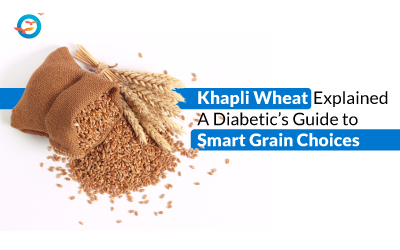Orange and Diabetes

Complete knowledge about Orange & Diabetes
The common idiom "That is like Apples and Oranges".. means a comparison between two unlike things or people.
But did you know there is something in common in both?
Both fruits play a big role when it comes to diabetes!
The other day, we learned how apples are beneficial in diabetes.
Today, we will know how oranges help in diabetes.
What is an orange fruit?
The orange is the fruit of various citrus species in the family Rutaceae which is also called sweet orange.
The orange originated in the Southern and Northeast parts of India, China, and Myanmar.
Chinese literature is shown to have the earliest mention of the sweet orange in 314 BC.
Orange trees are widely grown in subtropical and tropical climates for their sweet fruit. The orange fruit is eaten fresh or processed for its juice or fragrant peel.
Types of orange fruit found worldwide are -
- Navel orange
- blood orange
- Tangerine
- Acid-less orange
- Mandarin
- Seville Orange
- Bergamot Orange
- Clementine
- Trifoliata Orange
- Cara Cara Navel Orange
The main states growing oranges in India are Maharashtra, Rajasthan, Karnataka, Madhya Pradesh, Assam, Nagaland, Mizoram, Tamil Nadu, West Bengal, Orissa, and Meghalaya.
Orange varieties cultivated in India are
- Coorg Orange
- Nagpur Orange
- Mudkhed Orange
- Khasi Orange
- Butwal Orange
- Shringar Orange
- Dancy Orange
- Kara (Abohar) Orange
- Sumithra mandarin Orange
- Darjeeling Mandarin Orange
- Kinnow Mandarin Orange
- Seedless-182 Orange
Orange Nutrition facts
The orange flesh is 1% protein, 12% carbohydrates, 87% water, and contains negligible fat.
The orange fruit flesh of 100 grams provides 47 Calories, is a rich source of Vitamin C, provides 64% of the daily value.
Oranges contain various phytochemicals like Carotenoids, flavonoids, and numerous volatile organic compounds which produce orange aromas.
Nutritional value per 100 gm of Orange fruit contains
- calories 47 kcal
- Carbohydrates 11.75 g
- Sugars 9.35 g
- Dietary fiber 2.4 g
- Fat 0.12 g
- Protein 0.94 g
- Vitamin A Equiv. 1%
- Thiamine (B1) 8%
- Riboflavin (B2) 3%
- Niacin (B3) 2%
- Pantothenic acid (B5) 5%
- Vitamin B6 5%
- Folate (B9) 8%
- Choline 2%
- Vitamin C 64%
- Vitamin E 1%
- Calcium 4%
- Iron 1%
- Magnesium 3%
- Manganese 1%
- Phosphorus 2%
- Potassium 4%
- Zinc 1%
- Water 86.75
Orange fruit benefits -
- Oranges are a very good source of vitamin C and beta carotene which helps to improve vision.
- Oranges are also a good source of potassium, thiamin, and folate. Potassium helps in lowering blood pressure.
- The flavanones, phenolic acid, and flavonols in oranges have great protective abilities, especially in diabetics.
- When it comes to glucose metabolism, citrus fruits not only slow glucose uptake but also, inhibit the movement or transport of glucose through the intestines and liver.
How many oranges to consume?
A diabetic can have orange in a smoothie or can eat as a whole.
So, eat the oranges and have a better vision to see your diabetes go away!
How did you find this piece of information to be? Did you ever know oranges were beneficial in diabetes?
This blog can be equally insightful for your family and friends. So...definitely share it!
Freedom from Diabetes blog is full of such valuable information.
Go through our blog on Apples and their vital role in diabetes.
Also, visit our Instagram account to find more interesting information, all about health and diabetes!
Disclaimer:
This Blog solely serves our marketing purposes, for Authentic knowledge for this topic, Please join our upcoming DRS Batch.
